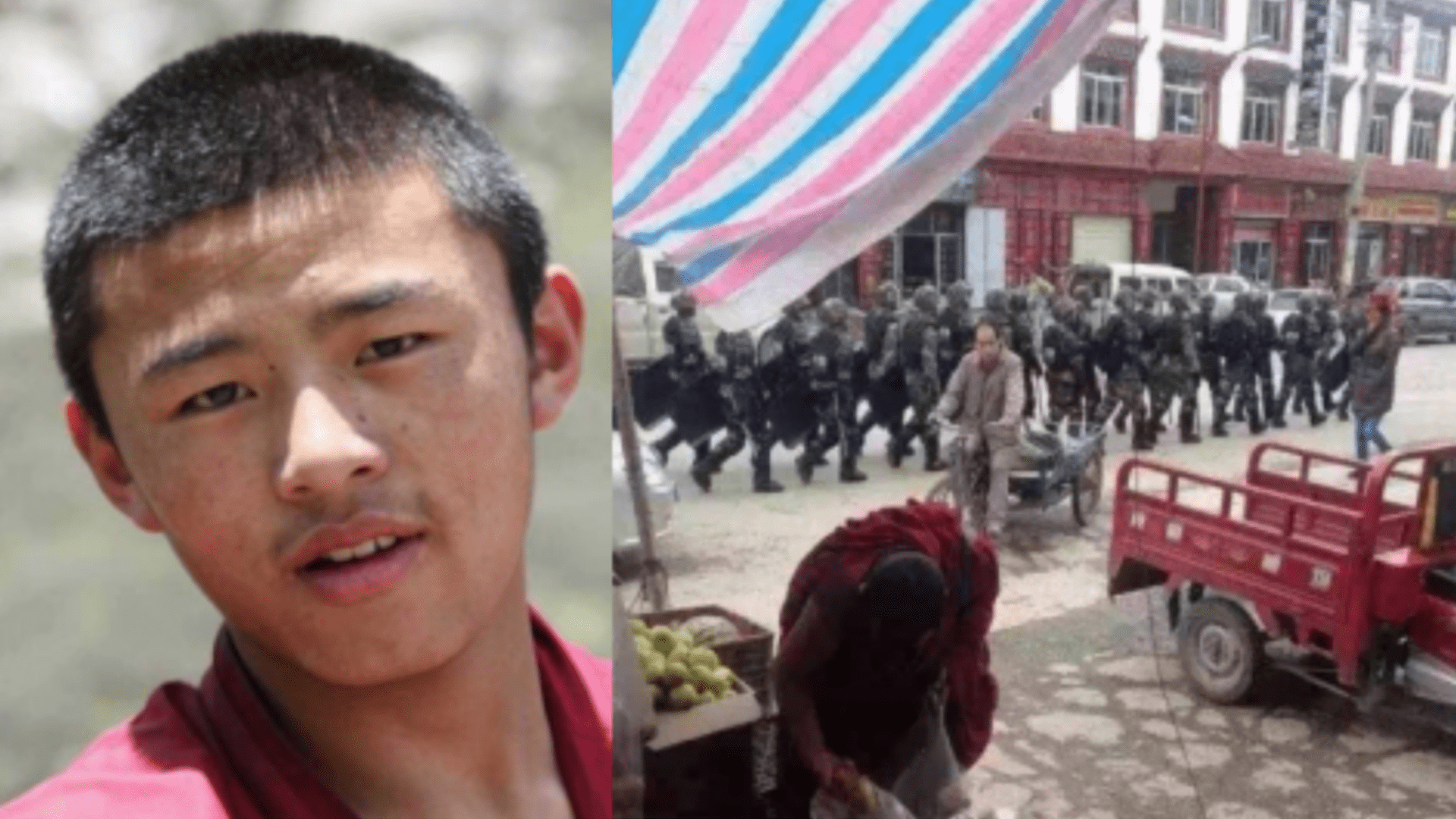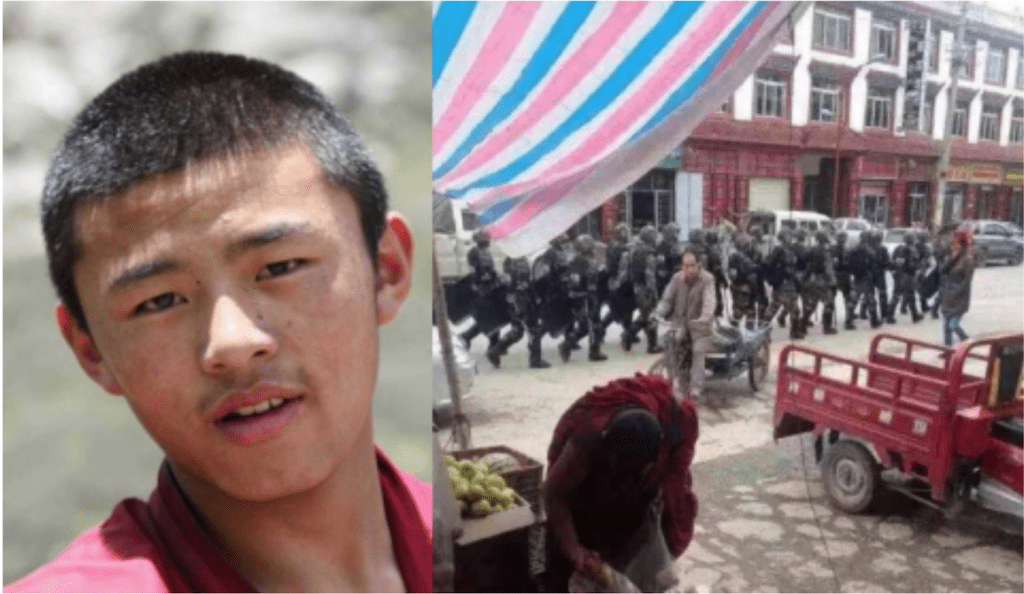
Two Self-immolations Reported in Ngaba
Reports of two Tibetan teenagers self-immolating have been confirmed
Gendun Gyatso and Choekyi Gyatso, who are both believed to be around the age of sixteen, set themselves on fire in protest against Chinese oppression in Tibet.
Both self-immolations took place on the road Tibetans call Hero Street in Ngaba County, eastern Tibet, on 9 December.
They have been taken to two different hospitals in Barkham County and Kakhog County. It has been reported that one of the teenagers has died.

One of the self-immolation protesters (left). Security forces deployed along Hero street in response to protests in September 2015 (right)
Sources have reported that they called for freedom for Tibet during their protests. However, there are currently no further details due to restrictions imposed on the area.
Of the more than 150 confirmed self-immolations that have taken place in Tibet since 2009, over 40 have now taken place in Ngaba which is a hotspot for Tibetan resistance.
These two cases have come to light following an unconfirmed case earlier this month.
It was reported that on Saturday 8 December, Dugkho, a young Tibetan in his twenties set himself alight in Ngaba County. Tibetan news sites claim he shouted slogans calling for the long life of the Dalai Lama, the spiritual leader of Tibet.
However, due to an immediate lockdown of the surrounding area, with internet communications blocked, the incident cannot be verified nor can further details be obtained.
A video later emerged of a man purporting to be Dugkho’s uncle who said that Dugkho died of burns caused by a motorbike accident and that he was not carrying out a protest. Once again this cannot be confirmed without further evidence.
It is also possible that Chinese authorities may have pressured Dugkho’s uncle to make such claims. Similar tactics have been used to downplay levels of Tibetan resistance on previous occasions. One example is the case of Kalsang Wangdu, an 18-year-old monk who self-immolated in March 2016. Kalsang’s family was pressured by the Chinese officials to say that he died in a house fire instead of a self-immolation as confirmed by the evidence available.
In 2013, following the self-immolation of Kunchok Wangmo, authorities initially claimed she had set fire to herself for personal reasons and tried to pressure her husband, Dolma Kyab, into making a statement that she committed suicide not a self-immolation protest. When he refused he was arrested and other family members were then offered bribes by Chinese officials in exchange for a similar statement. When they also refused the authorities changed their approach and charged Dolma Kyab with killing his wife. He was sentenced to death and, as far as we know, remains on death row.
Information supplied by Tibet Watch

